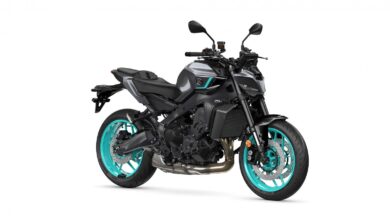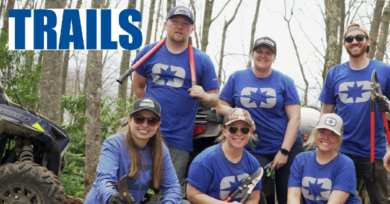Jan. 21, 2008 – Big Dog: Warranty claims dropping in frequency
Big Dog Motorcycles is seeing results from its effort to improve the reliability of its product, a process that was kick-started with a significant change in philosophy and staffing.
The Wichita, Kan., custom manufacturer is reporting a substantial drop in the frequency of warranty claims nearly a year and a half after establishing a new group of engineers that were tasked to specialize on warranty issues. In fact, warranty occurences are down 63 percent from 2005-2007, Big Dog officials report.
The issue of warranty claims was discussed in detail at the manufacturer’s dealer network meeting in August. Company President Nick Messer updated the manufacturer’s progress in that area during a recent interview with Powersports Business.
Messer said the establishment of the company’s field support engineering team has led to the sizeable drop in the warranty claims.
“What’s even better,” he said, “is we’re addressing (warranty issues) sooner rather than later. Rather than building a whole year’s worth of product and realizing there’s a flaw, we’re catching it much sooner.”
The field support team includes an electrical engineer, a mechanical engineer and separate engineers who specialize in fuel injection and drive trains. To form the team, Big Dog increased its engineering staff, adding engineers from Harley-Davidson and others from the aircraft industry, which is prevalent in Big Dog’s back yard.
The company’s decision to invest in more engineering comes despite the segment’s reputation for consumers that look first and foremost at polish and paint jobs rather than performance.
“They’re concerned with it, but it’s not a primary focus at the time of purchase,” Messer said of the traditional V-twin bike buyer and their focus on a bike’s reliability. “Most of the consumers’ main concern is how it looks, the paint job, overall if they like it. Then they start thinking about the company — is a solid company behind it? Things like that always influence a purchasing decision. But is it the most reliable? I don’t think that’s on top of their mind.
“However, to us it’s essential for retaining that customer to make him want to keep that motorcycle or trade it for another new Big Dog at a later day. So testing and the reliability factor is huge.”
Huge not only in the consumer’s eye, but for the manufacturer’s bottom line, Messer points out.
“It’s amazing how you can build up this great organization and build all the motorcycles in the world, but if you don’t have a support group to support that unit and make sure it’s reliable and doing everything you can to keep warranty dollars down, you’re kind of defeating your purpose,” he said of the effect warranty claims can have on a manufacturer’s bottom line. “Volume doesn’t always make up for the cost in the field.”
To lessen that cost, Big Dog divided its engineers into three groups: new product design, testing and the field support team that concentrates on reliability. This latter group tracks the frequency of warranty claims and tries to identify what those problems are, what components are affected and how to promptly fix them. “Sometimes the warranty claim is as simple as an error in the production line,” Messer said, noting repairs get more difficult and costly if the warranty claim is traced back to a design flaw.
The latter are more apt to occur with new models sporting major changes to electronics, drive trains or both.
“I can honestly say the product continues to get better every year,” Messer said. “We’re not where the big guys like Yamaha are yet (in terms of warranty claims), but we like to think we’re rapidly approaching it.”
While Big Dog has put more emphasis on its reliability, it hasn’t broadcast this fact to its potential clientele.
“The bulk of our customers are just expecting it,” Messer said, noting many V-twin shoppers have a “Lexus mentality,” that “the more money they spend on the product, the better it must be.
“We’re not doing this for (public relation) purposes against our competitors. We’re doing it because we just need to build a better product. The proof will come out in the product itself. The dealers will support it more if they know it’s a better product. The consumers will find out from the different Web sites that are out there that talk about this stuff. I like to think the cream rises to the top.”
— Neil Pascale




